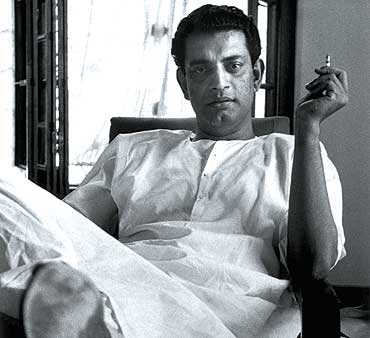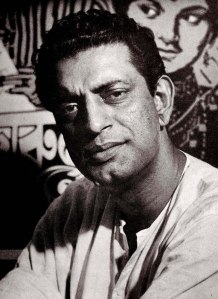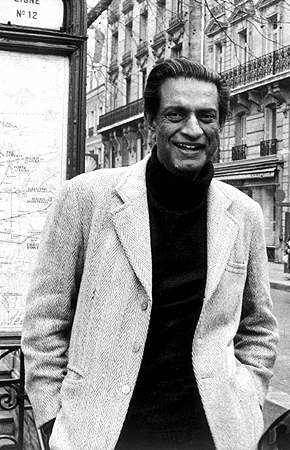“My bounty is as boundless as the sea,
My love as deep; the more I give to thee,
The more I have, for both are infinite”

William Shakespeare quoted it rightly – “Some are born great, some achieve greatness”… Remembering two legends today – both born great and achieved greatness in their respective lives.
It’s the 450th birth anniversary of the greatest writer of English language – “Bard of Avon” – William Shakespeare. And when it comes to wishing the most noteworthy, sophisticated, elegant, significant, funny, astute, prudent and human writer ever to use the English language in the best possible way, it really gets difficult somewhere as I fall short of words.
Although he was baptised on April 26, 1564, many believe his actual birthday is on April 23, 1564. Like most of his work, his birthday remains mysterious and open to explanation and interpretation to individual theories.
At the tender age of 18, Shakespeare married Anne Hathaway, a woman eight years older to him, who remained one of the biggest inspirations of his life. Not much is known about how he earned his living for several years after his marriage. Some say, he worked briefly as a school teacher before moving to London in 1954, when he joined the Lord Chamberlain’s company of actors.
Between 1593 and 1601, Shakespeare was composing sonnets and poetries. Much later a compiled work consisting 154 sonnets, written in the form of three quatrains and a couplet was published. This style is now regarded as Shakespearean.

Shakespeare penned more than 30 plays. During the early days of playwriting, he primarily wrote comedies and histories such as Henry VI and The Comedy of Errors. In 1596, soon after he wrote Romeo and Juliet, his second tragedy, he was much appreciated for the style. In the next one decade time and again he returned to the form composing, Julius Caesar, Hamlet, Othello, King Lear, Macbeth, and Antony and Cleopatra. During his final years, the playwright persisted to romantic plays with Cymbeline, A Winter’s Tale, and The Tempest.
Thousands of English words were invented by Shakespeare through his poems and plays. He often combined words from Latin, French and native roots. According to Oxford English Dictionary, some of the words that were invented by William Shakespeare, and are very commonly used today are: arch-villain, birthplace, bloodsucking, courtship, dewdrop, downstairs, fanged, heartsore, hunchbacked, leapfrog, misquote, pageantry, radiance, schoolboy, stillborn, watchdog, and zany.
Ironically the day also marks the 400th death anniversary of this most excellent creative genius.

22 years ago, on this day, Bengal and India, as a whole, lost its most talented filmmaker – the man who changed the face of Indian cinema forever – the man who can be best described as an artist, ad designer, author, film-maker, musician, painter and thinker – Father of Indian Cinema, Satyajit Ray.
Ray was born on May 2, 1921 in a Bengali family, which gained distinctive eminence for their contributions to art, literature, music, physics and printing technology. He spent his most pivotal years in Shantiniketan, under the guidance of Rabindranath Tagore, Nandalal Bose and Benod Behari Mukherjee.
In 1943, Ray began working as a junior visualizer and graphic artist at the British advertising agency D.J. Keymer. During this time he also worked with Signet Press several book covers like Aam Aatir Bhepu (by Bibhuti Bhusan Bandopadhyay), Man-Eaters of Kumaon (by Jim Corbett) and The Discovery of India (by Jawahar Lal Nehru).

Soon Ray got an opportunity to travel to London on an assignment. Here he happened to meet several stalwarts of World Cinema. Among the many films he watched in London was Neorealist Vittorio De Sica’s Ladri di biciclette or Bicycle Thieves (1948). Ray, in many interviews have said that this film created a profound impact on him and drove him to film making.
With Pather Panchali, his first release in 1955, Ray changed the concept of filmmaking. Later he made Aparajito and Apur Sansar to form the Apu trilogy that earned phenomenal critical acclaim.
Ray directed 36 films including several documentaries and short films that received numerous awards for cinematic brilliance. His work primarily explores and captures copious facets of human sentiments and society. The kaleidoscopic view of the characters that Ray created, have today become a subject of study among film aficionados.
Ray’s work gave him a successful entry into the international film scene, where he shared hallowed ranks of cinematic greats like Jean Renoir, Francois Truffaut, Akira Kurosawa and many others.

Ray is also a celebrated writer. He is regarded as one of the most profound originator of detective and science fiction in Bengali literature. The sharp private investigator Feluda, and the eccentric genius Shonku are two of his most widely read creations. Ray regularly wrote for Sandesh, a famous Bengali children’s magazine, first published by Upendrakishore Raychowdhury (Ray’s grandfather) in 1913. He has also published several works on film criticism.
Satyajit Ray was conferred with Padmashree in 1958, Padmabhushan in 1965, D. Litt., Royal College of Arts, London in 1974, Padma Vibhushan in 1976, D. Litt., Oxford University in 1978, Homage à Satyajit Ray at Cannes Film Festival in 1982, Dadasaheb Phalke Award in 1985, Fellowship of Sangeet Natak Academy in 1986, Légion d’Honneur in 1987, and Bharatratna in 1992. He received 32 National awards for him multiple works. Among the various international awards Ray received Golden Lion and Silver Bear, regarded as one of the most prestigious awards in the universe. In 1992 Ray was felicitated with the Academy Award for Lifetime Achievement, when he was lying on his death bed.
These two legends have left behind them a heritage of words, poetry, music, movies, humour, classics… Their creative legacies had and will give us the power to think, reinvent ourselves today and in days to come… they will never age for me, nor fade, nor die….
One thought on “The World is a Stage today on their Birth and Death Anniversaries ”